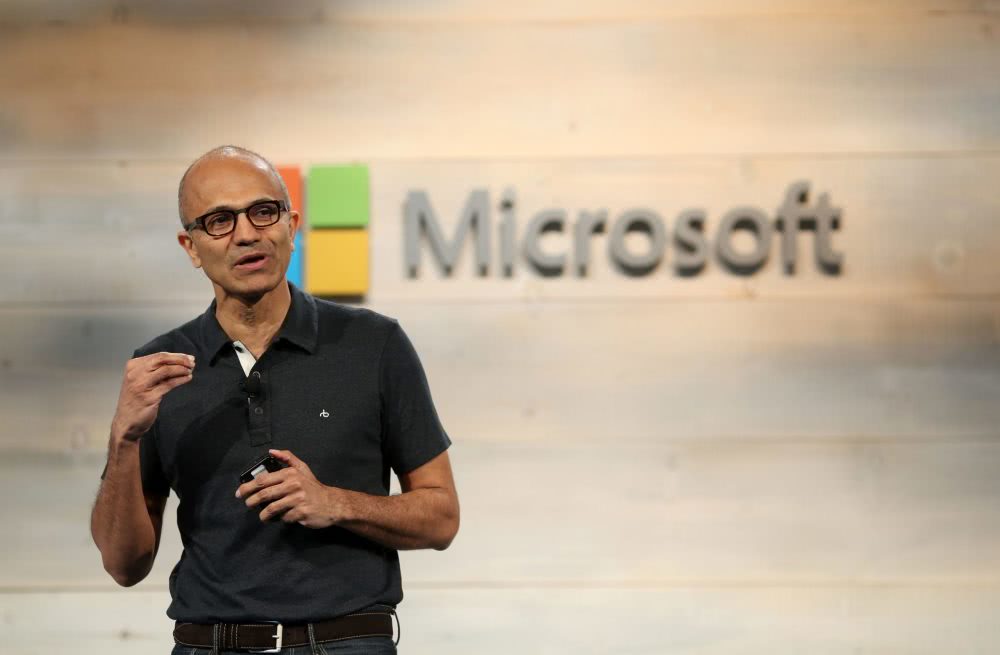Nadella believes that retailers are better off building their own artificial intelligence teams to predict consumer behavior or solve last-mile delivery challenges rather than investing more money in ad search capabilities From Tencent Technology .

Picture: Microsoft CEO Satya Nadella
January 14, according to foreign media reports, one of the many benefits that Satya Nadella can enjoy as the CEO of Microsoft is that he is very aware of the data that the American business community now has More than ever. Of course, knowing Bill Gates’ personal email address is definitely cool. But accessing an unprecedented amount of data and gaining rich insights from it is equally cool.
In fact, many big companies are using this data to make previously unforeseen profits and empower employees in new ways that have a greater impact on consumers. Of course, countless other companies still fail to benefit from this data, either because they lack the relevant will or because they lack the financial resources to use technology. Or, they have money, but they spend it in the wrong place and don’t generate enough value.
This is very common, as is the retail industry. Many times, retailers hang their names on press releases that emphasize flashy new technology products, but they never really work hard to lay pipes inside the company to support future technology applications. In addition, as we all know, retail executives usually like to stick to the old-fashioned way of doing things, because 10 years ago, before today’s world of large-scale computing power was born, they might have done well.
But in this day and age, this mentality is no longer acceptable to businesses, especially retailers. As a retailer, Microsoft is no stranger to this situation. Microsoft uses part of its store as a consumer-facing platform and the other part as a learning lab. In Nadella’s view, those who explicitly embrace technology and its many advantages will become the winners of the retail industry in the next decade. Nadella especially believes retailers must make better use of themThe collected consumer data, instead of investing a lot of money in search advertising on sites such as Google and Facebook, is not guaranteed.
At the National Retail Federation ’s NRF 2020 conference, Nadella said in an interview: “The most valuable asset owned by the retail industry and retailers is business intent data. Today, I think, to some extent, Sometimes others benefit from the data they collect. Any retailer who places more online advertising on traditional aggregating websites is essentially leaking the value of the data.
Nadella believes that retailers are better off building their own artificial intelligence teams to predict consumer behavior or solve last-mile delivery challenges rather than investing more money in ad search capabilities. Nadella said the best examples of retailers doing this include Starbucks, Walmart and Home Depot.
For Starbucks, the coffee giant doesn’t offer free iced coffee on the Internet. Instead, it spends a lot of time building predictive analytics in its mobile app, which now knows what users want even before the user. Starbucks even added new technology to its in-store coffee machines to analyze performance and predict future coffee shop demand.
Every retailer mentioned above is regarded by Wall Street as a leader in the technology industry. It is not surprising that their stock price performance has exceeded the retail industry average in the past 10 years. In fact, Nadella’s point is well documented. Although all the money is spent on platforms like Google and Facebook to cater to shoppers, the retail industry is still weak.
According to market research firm eMarketer, U.S. retailers ’spending on digital advertising has increased by about 19% in 2019 to $ 28.3 billion. However, according to data released by Coresight Research, 9302 retail stores were closed in 2019, a 59% increase from 2018. This marks a new record for the number of closed retail stores. UBS estimates that another 75,000 retail stores will be closed by 2026.
With the decline of consumer groups in the retail sector, this reflects to some extent the excessive savings of the US in the era of online shopping. But in Nadella’s view, a large part of the reason may be that retailers have not invested wisely in technology and have not taken full advantage of the benefits of technological advancement. Nadella said: “I really hope that the retail industry will usher in a brand new development in the 1920s.” (Tencent Technology Review / Golden Deer)